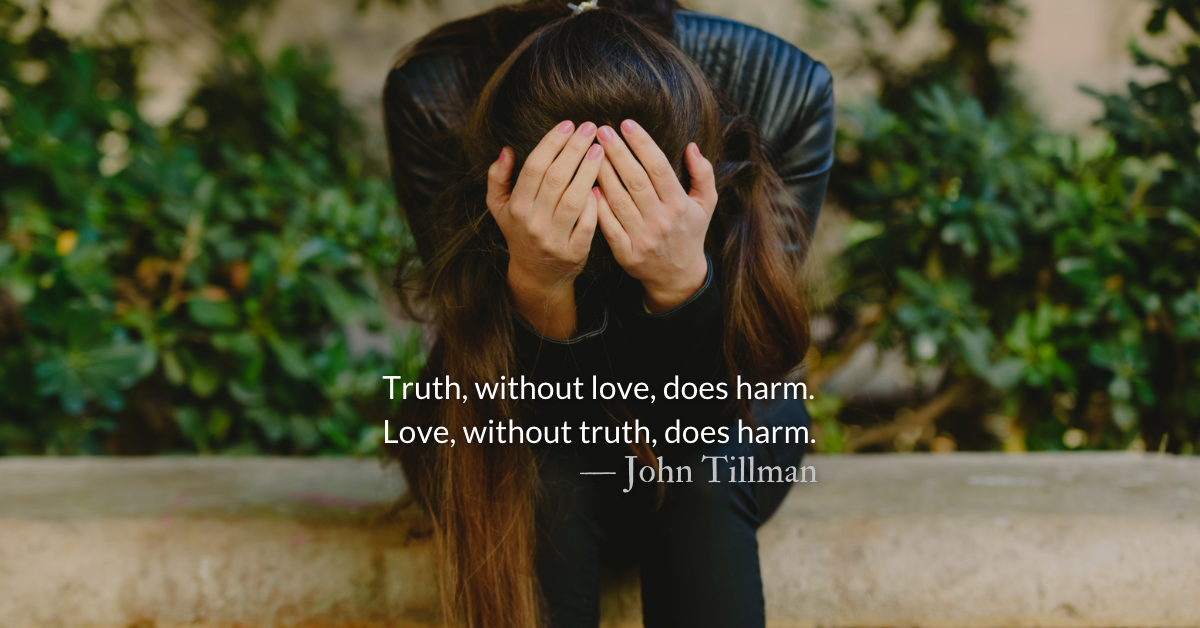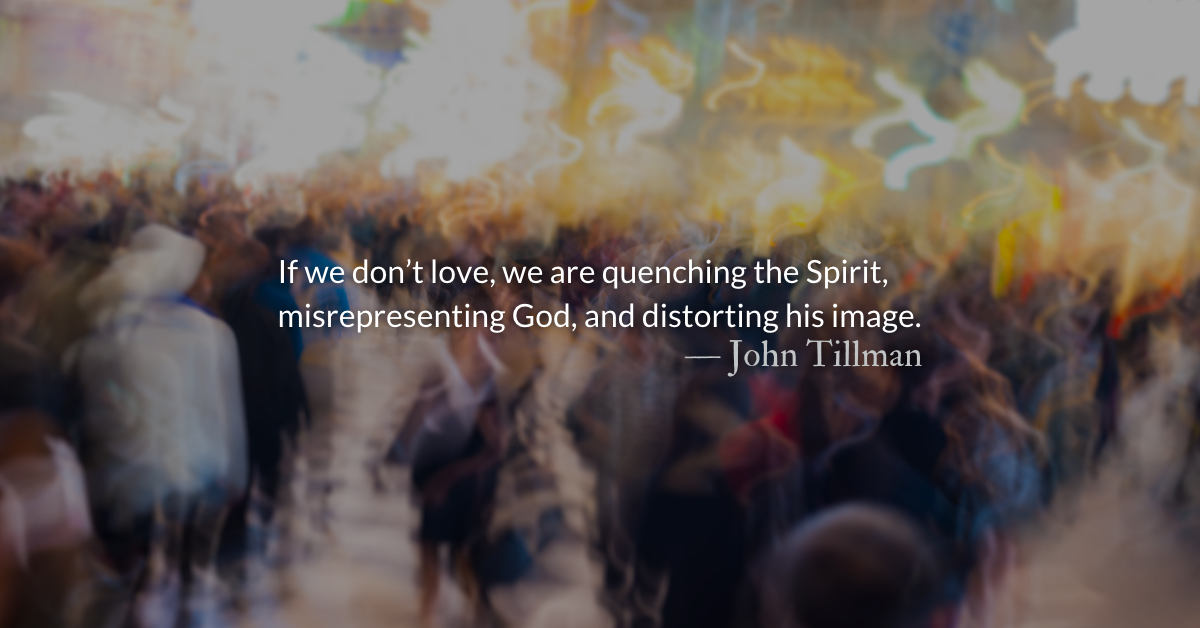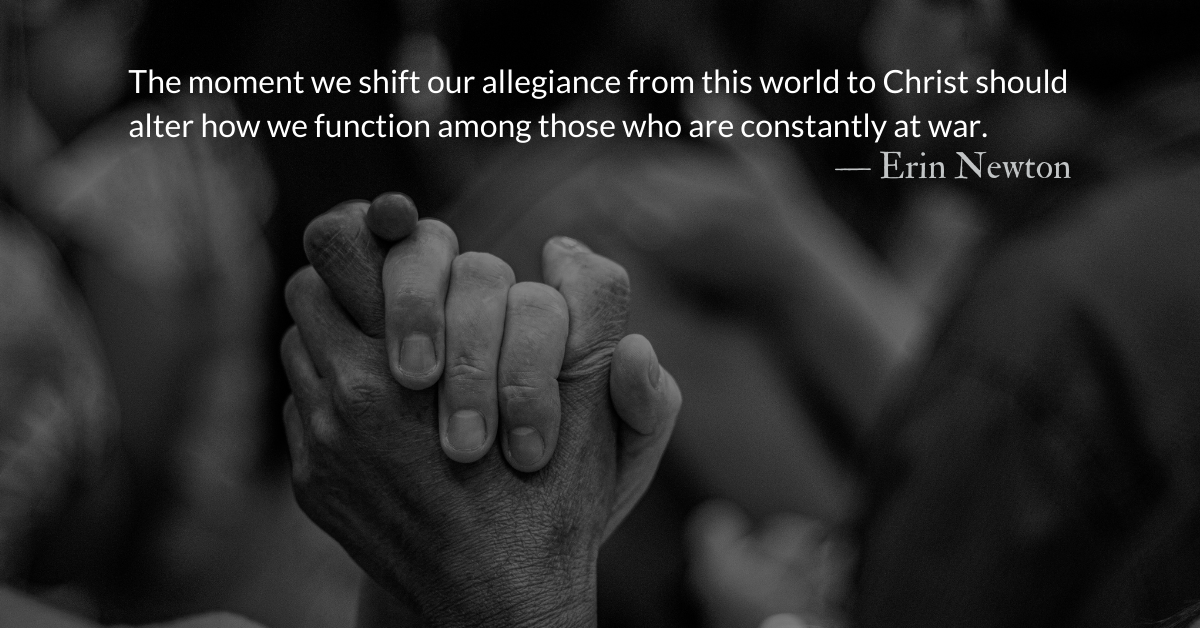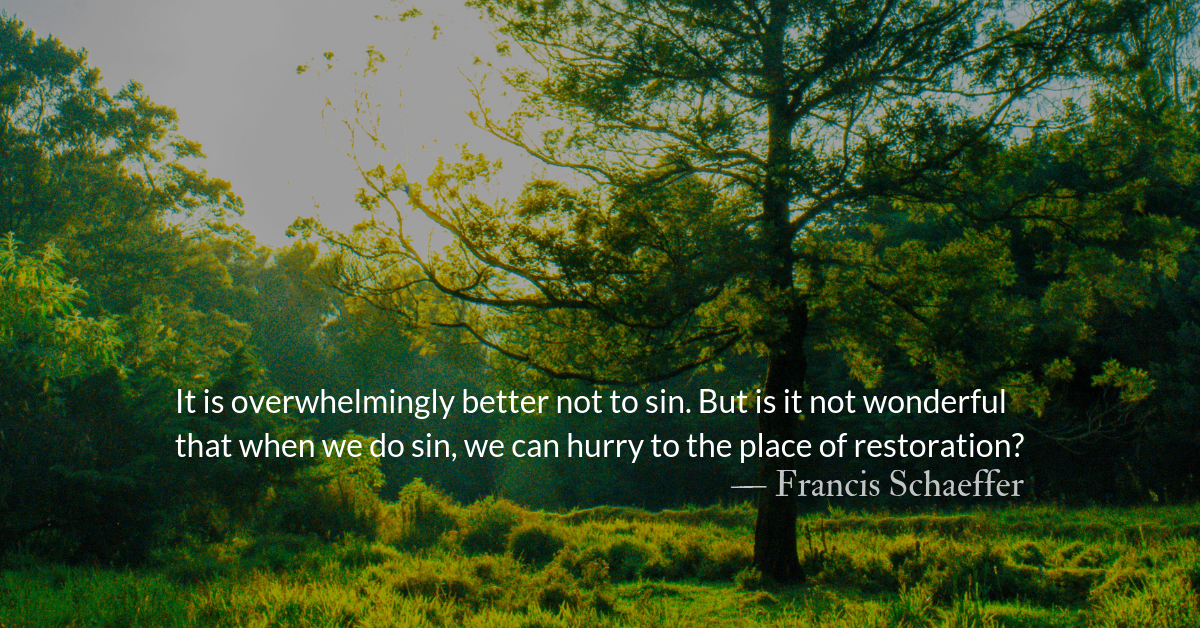Scripture Focus: 1 Corinthians 13.1-3
1 If I speak in the tongues of men or of angels, but do not have love, I am only a resounding gong or a clanging cymbal. 2 If I have the gift of prophecy and can fathom all mysteries and all knowledge, and if I have a faith that can move mountains, but do not have love, I am nothing. 3 If I give all I possess to the poor and give over my body to hardship that I may boast, but do not have love, I gain nothing
“Truth without love is harshness; it gives us information but in such a way that we cannot really hear it. Love without truth is sentimentality; it supports and affirms us but keeps us in denial about our flaws.” — Tim Keller
Reflection: Love Great or Terrible
By John Tillman
People get poetic talking about love. In “love songs,” love is either great or terrible.
All you need is love.
What’s love got to do with it?
Love makes the world go ‘round.
Love me tender.
You’re gonna love me.
Sometimes love don’t feel like it should.
At last, my love has come along.
Can anybody find me somebody to love?
I just want to use your love tonight.
I don’t know where to put my love.
I want to know what love is.
Love hurts.
Love bites.
Love stinks.
Paul’s poem on love comes after discussing the gifts of the Spirit. The Corinthians used gifts in powerful, chaotic, and competitive ways that harmed the church. Paul determined to show them a better way—the way of love. (1 Corinthians 12.31)
Jesus named love (of God and neighbor) as the greatest commandment. Paul names love the greatest gift of the Spirit.
A saying around the church I attend is that we follow the words of Jesus and the way of Jesus. It’s one way of saying we speak truth in love. (Ephesians 4.15) The Corinthian church had the “gifts” of Jesus but they weren’t following the “way” of Jesus.
Truth, without love, does harm.
Love, without truth, does harm.
It doesn’t matter how true your words are if they wound people. Some have been wounded so badly by “truth-tellers,” they can’t distinguish the truth from the wound. If you use truth to put people in this condition, what use is your “truth?”
It doesn’t matter how much you love if you never speak truth. Some people mistake unconditional love for unconditional endorsement. Without the truth, people will continue in lies that destroy their bodies, minds, and souls. If you allow this to happen, what use is your “love?”
In the songs quoted above, the difference in love being great or terrible is usually the character of the lover. Let us love in a way that shows the character of Jesus. Don’t let the truth you speak be a resounding gong of nothingness that drives people from salvation, rather than calling them to it.
Love and truth, together, lift others. They don’t push them down.
Love and truth, together, enlighten others. They don’t blind them.
Love and truth, together, save others. They don’t terrorize them.
Love and truth, together, show the character of Jesus, the true lover of our souls.
Divine Hours Prayer: The Greeting
I will thank you, O Lord my God, with all my heart, and glorify your Name forevermore. — Psalm 86.12
– From The Divine Hours: Prayers for Springtime by Phyllis Tickle.
Today’s Readings
Deuteronomy 3 (Listen 4:33)
1 Corinthians 13 (Listen 2:23)
Read more about Another Love Chapter
If asked about the Bible’s “Love Chapter”, most think 1 Corinthians 13. But there is another love chapter. 1 John 4…
Read more about Freedom For, Not From
Let us think about our freedom in the way Paul did, not as a way to benefit ourselves but as a way to benefit others and spread the gospel.











